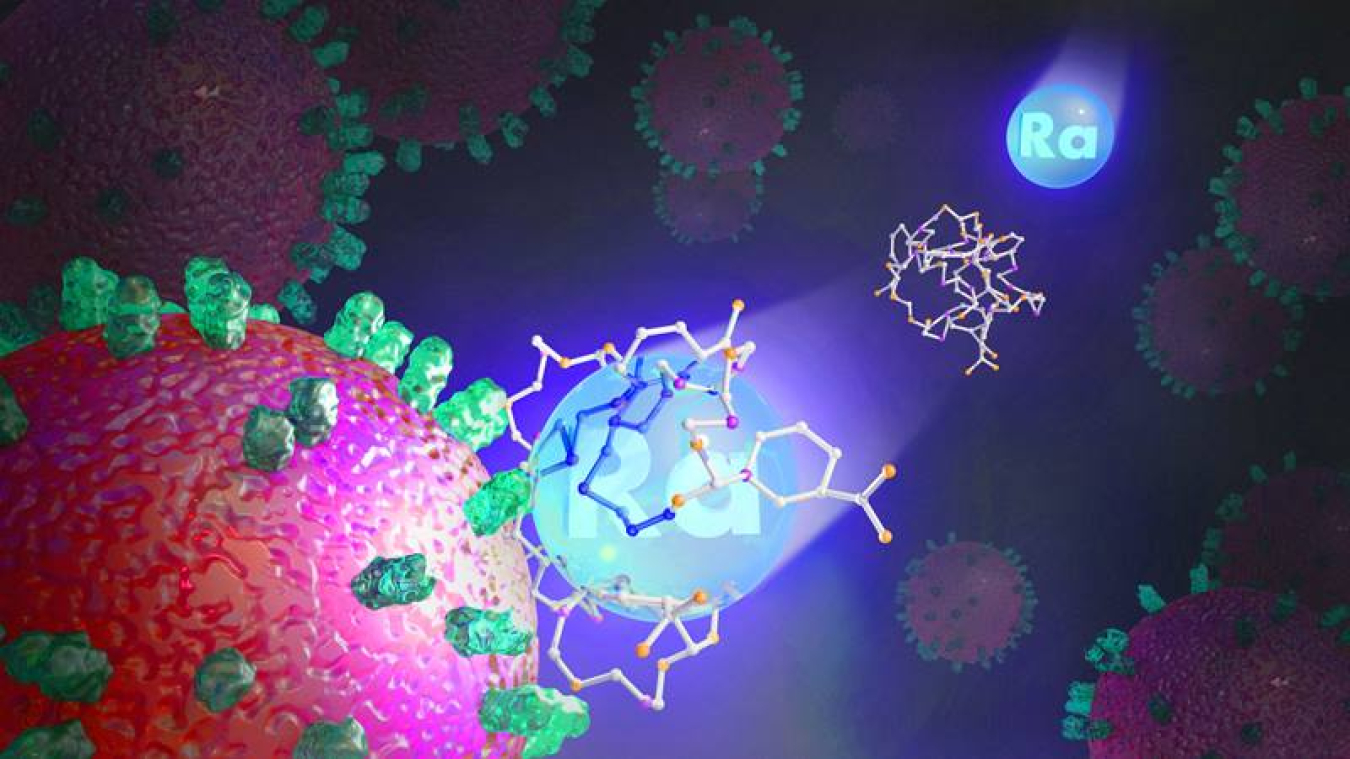## Can Trump Turn Cancer into an American Victory?
Forget trade wars and political battles, folks. There’s a new frontier where the U.S. can truly dominate: the fight against cancer.
That’s the message The Cancer Letter is sending, and it’s a call to action for President Trump. This isn’t just about scientific breakthroughs, it’s about strategy, investment, and positioning America as the global leader in beating this devastating disease.

The Gaming Angle: How Technology Can Fuel the Fight
AI and Big Data: Analyzing Complex Cancer Patterns for Personalized Treatment

The sheer complexity of cancer, with its myriad subtypes and individual variations, presents a formidable challenge to traditional treatment approaches. However, the convergence of artificial intelligence (AI) and big data is revolutionizing how we understand and combat this disease. AI algorithms can analyze vast datasets of genomic information, patient records, and clinical trials, identifying intricate patterns and correlations that elude human analysis. This allows for the development of personalized treatment plans tailored to each patient’s unique cancer profile.
For example, IBM’s Watson for Oncology, a powerful AI-driven platform, assists oncologists in making more informed treatment decisions by analyzing patient data and providing evidence-based recommendations. By leveraging the power of AI and big data, we can move towards a future where cancer treatment is truly personalized and effective.
Virtual Reality Training: Empowering Oncologists with Immersive Simulations
Gamestanza has previously explored the potential of virtual reality (VR) in various fields, and its applications in oncology are equally transformative. VR technology enables the creation of immersive simulations that allow oncologists to practice complex surgical procedures, radiation therapy planning, and patient interactions in a safe and controlled environment.
These simulations provide invaluable training opportunities, enhancing surgical dexterity, improving treatment accuracy, and boosting confidence in high-stakes situations. Studies have shown that VR-based training can significantly reduce surgical errors and improve patient outcomes. As VR technology continues to advance, its role in oncology education and training is poised to expand even further.
Gamification for Patient Engagement: Motivating Patients Through Interactive Tools
Engaging patients in their own care is crucial for successful cancer treatment. Gamification, the application of game design principles to non-game contexts, offers a powerful tool for enhancing patient motivation and adherence to treatment regimens.
Interactive apps, wearable devices, and online platforms can leverage game mechanics such as points, rewards, and leaderboards to encourage healthy behaviors, track progress, and provide personalized feedback. By making treatment more engaging and rewarding, gamification can empower patients to take an active role in their recovery and improve overall treatment outcomes.
Real-World Impact:
Faster Drug Development: Accelerated Timelines for Life-Saving Therapies
The traditional drug development process is notoriously lengthy and costly, often taking years to bring a new therapy to market. Technology, particularly AI and big data, is accelerating this process by streamlining clinical trials, identifying promising drug candidates, and predicting potential side effects.
Machine learning algorithms can analyze massive datasets of patient information and drug interactions, identifying patterns and insights that can guide drug discovery efforts. This can significantly reduce the time and resources required to develop new cancer treatments, bringing hope to patients sooner.
Reduced Healthcare Costs: More Effective Treatments, Fewer Complications
Cancer treatment is a major driver of healthcare costs, both in the United States and globally. The increased effectiveness of personalized therapies, facilitated by AI and big data, can lead to significant cost savings by reducing the need for repeated treatments, hospitalizations, and long-term care.
Furthermore, the early detection and prevention of cancer through advanced diagnostic tools and risk prediction models can prevent costly and debilitating treatments down the line.
Improved Patient Outcomes: Enhanced Survival Rates and Quality of Life
The ultimate goal of cancer research is to improve patient outcomes, extending lives and enhancing quality of life. Technological advancements are making significant strides in this area. Precision medicine, driven by AI and big data, allows for the delivery of targeted therapies that are more effective and have fewer side effects.
Surgical robotics, VR-assisted training, and cancer-detecting AI algorithms are all contributing to earlier diagnosis, more precise treatment, and ultimately, better survival rates and overall well-being for cancer patients.
The Road Ahead: Challenges and Opportunities
Political Will: Ensuring Sustained Commitment to Cancer Research
While technological advancements hold immense promise for the fight against cancer, their successful implementation requires sustained political will and investment.
Government funding for cancer research is crucial for supporting the development of new therapies, technologies, and clinical trials. A long-term commitment to this endeavor is essential for realizing the full potential of these advancements and making a lasting impact on cancer outcomes.
Ethical Considerations: Navigating the Complexities of AI and Data Privacy
The use of AI in healthcare raises important ethical considerations, particularly regarding data privacy and algorithmic bias. It is crucial to ensure that AI algorithms are developed and deployed responsibly, with safeguards in place to protect patient privacy and prevent discriminatory outcomes.
Transparency in AI decision-making processes, robust data security measures, and ongoing ethical review are essential for navigating these complex issues and ensuring that AI technology is used ethically and beneficially in cancer care.
Public Awareness: Inspiring a National Movement to Conquer Cancer
Public awareness and engagement are critical for advancing the fight against cancer. Educating the public about the latest research, technological breakthroughs, and the importance of early detection can empower individuals to take control of their health and support the development of life-saving treatments.
Creating a national movement to conquer cancer, fueled by public awareness, research funding, and technological innovation, is essential for achieving our collective goal of eradicating this disease.
Conclusion
“The Cancer Letter” argues that the current political climate presents a unique opportunity for former President Trump to leave a lasting legacy by championing U.S. cancer research. The article highlights the nation’s existing strengths in this field, citing its innovative research institutions, world-class scientists, and groundbreaking advancements. Yet, it also points to critical challenges, including bureaucratic hurdles, funding disparities, and the growing threat of global competition. By prioritizing federal investment, streamlining regulatory processes, and fostering international collaboration, Trump could potentially position the U.S. as the undisputed leader in the fight against cancer.
The implications of this bold vision are profound. Imagine a future where cancer is no longer a death sentence, but a manageable chronic condition. Picture a world where personalized treatments eradicate tumors with unparalleled precision, and where the burden of illness is significantly reduced. This is the future that “The Cancer Letter” envisions, a future made possible by unwavering political commitment and strategic investment in scientific progress. While the path ahead is undoubtedly complex, the potential rewards are immeasurable.
The question remains: will the next chapter in American leadership be one of bold action and scientific triumph, or will we allow this golden opportunity to slip through our fingers? The answer lies in the hands of our leaders and the unwavering support of the public. The time to act is now.